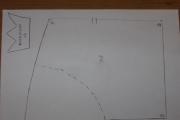Pensioners are dismissed without working out an article of the labor code. Dismissal of a pensioner at his own request without service: conditions, sample application
Dismissal of a pensioner at will without processing is carried out in accordance with current legislation RF. But to take advantage of this opportunity, it is important to know all the nuances. By law, men have the right to retire at the age of 60, and women at 55. But, despite this fact, many citizens, upon reaching retirement age continue to work officially at their previous job. And if they have worked for some more time, they have the right to quit without working off. How does this happen? Let's figure it out.
What is important to know?
Pensioners are a special category of citizens for whom certain conditions have been developed, prescribed in the articles of the Labor Code of the Russian Federation. Knowing this information, the employer will be able to avoid misunderstandings when dismissing a pensioner at his own request.
Personnel services are required to know Articles 77, 80, 127, 140, 178 of the Labor Code of the Russian Federation, which reflect the grounds for dismissal of citizens of retirement age, data on various benefits and payments, possibilities of compensation for those dismissed, information about annual leave, the mechanism for dismissing pensioners and calculation periods.
Features of dismissal of a pensioner on his own initiative
The process of dismissing a pensioner at his own request is spelled out in detail in the Labor Code of the Russian Federation. When calculating these citizens, it is important to know the features that do not apply to other officially employed workers, namely:
- Upon dismissal, the pensioner must provide a statement indicating the reason.
- According to the law, a pensioner has the right to resign without working if he or she has specified retirement as the reason for leaving work.
- To be dismissed without 2 weeks of service, a citizen of retirement age must provide proof of his status. This document is a pension certificate.
- A citizen's non-retirement cannot become grounds for his dismissal.
- Officially employed citizens of retirement age have the right to legally continue their activities even after receiving a pension benefit.
- When creating a resignation letter due to an employee retiring, the employer is obliged to indicate in it the period of termination of the employment relationship.
- The dismissal of a pensioner can be initiated by him at his own request, regardless of his retirement.
 The laws of the Russian Federation protect pensioners from misconduct on the part of employers. And if management decides to dismiss a person of retirement age without his consent, this will be considered a direct violation of the Labor Code of the Russian Federation. IN similar situation a pensioner can file a complaint against the employer with the labor inspectorate or a lawsuit in court in order to restore his rights.
The laws of the Russian Federation protect pensioners from misconduct on the part of employers. And if management decides to dismiss a person of retirement age without his consent, this will be considered a direct violation of the Labor Code of the Russian Federation. IN similar situation a pensioner can file a complaint against the employer with the labor inspectorate or a lawsuit in court in order to restore his rights.
According to current legislation, citizens of retirement age can quit their jobs without working off. Moreover, they have the right to send such a statement to the management of their organization even if they are on vacation or sick leave at that time.
How is it possible to dismiss pensioners at will without working out?
The process of dismissal of a citizen at retirement age occurs as follows:
- Pensioner in mandatory fills out an application indicating the reason for dismissal addressed to general director enterprises.
- The application is signed by the immediate supervisor indicating the date of dismissal, and then transferred to the personnel department.
- The personnel department issues a dismissal order and provides it to the resigning employee for review.
- Then the personnel officer makes all the necessary entries in work book and the personal file of the dismissed person.
- After the dismissal, the organization’s accounting department makes former employee all calculations.
- The pensioner receives his documents, namely a work book, salary certificate, etc.
How should a pensioner fill out a resignation letter?
 If a working citizen is a pensioner and wants to resign from his position, then he is obliged to inform his boss about this. In this case, a statement serves as a notification. It must be filled out by hand on a regular sheet of paper or by ready-made template provided by the organization. In its header it is written who the document is being sent to and from whom, indicating the position and department. In the text of the application, the pensioner must indicate on what date he wishes to leave workplace, not forgetting to fill in the reason for dismissal, in in this case it will be retirement. Below he must put the current date and signature.
If a working citizen is a pensioner and wants to resign from his position, then he is obliged to inform his boss about this. In this case, a statement serves as a notification. It must be filled out by hand on a regular sheet of paper or by ready-made template provided by the organization. In its header it is written who the document is being sent to and from whom, indicating the position and department. In the text of the application, the pensioner must indicate on what date he wishes to leave workplace, not forgetting to fill in the reason for dismissal, in in this case it will be retirement. Below he must put the current date and signature.
Is it possible for a pensioner to resign without working?
Dismissal of a pensioner from work at his own request without working out is carried out by the personnel department according to the standard scheme, according to Art. 80 TKRF. The management of the enterprise is obliged to release the pensioner to a well-deserved rest on the day specified by him in the application.
If an employee had previously been dismissed at his own request due to retirement, but then returned to his duties, but in the status of a pensioner, then upon re-dismissal he will be required to work for 2 weeks, according to the Labor Code of the Russian Federation. However, by personal agreement with management, these rules can be changed.
How does military retirees retire at their own request without working out?
Citizen military personnel have the right to retire early due date, that is, for length of service. And since the pension in this case is the usual security, the rules for dismissal in relation to these persons are the same. Military retirees can resign from service at any time without prior service if they indicate retirement as the reason for dismissal.
What to do if your bosses won’t let you retire without working?
If the management of a company in which a citizen of retirement age works violates the legislation of the Russian Federation, namely, forces an employee to work for 2 weeks before going on a well-deserved rest, then the pensioner will have the right to write a complaint. He can complain to the labor inspectorate, which will subsequently inspect the organization and, if an obvious violation of the Labor Code of the Russian Federation is identified, will fine the management. If a pensioner worked for an individual entrepreneur, then the entrepreneur will receive penalties in the amount of 1 to 5 thousand rubles, in an LLC or JSC, then the organization will be fined 30-50 thousand rubles. If the culprit is found official, then it will receive a fine of 1-5 thousand rubles.
What payments are due to a pensioner after dismissal on his own initiative?
 On the day of official dismissal, the company’s accounting department is obliged to make a full settlement with the pensioner. Upon termination of the employment agreement, the company must pay him all compensation due under the law.
On the day of official dismissal, the company’s accounting department is obliged to make a full settlement with the pensioner. Upon termination of the employment agreement, the company must pay him all compensation due under the law.
If an employee officially retires for the first time, then all last payments from the employer will not be taxed. However, their size cannot exceed three salaries or wages.
What is filled out in a pensioner’s work book?
When registering the dismissal of a pensioner, like any other employee, an employee of the HR department is required to fill out a work book in accordance with the Labor Code of the Russian Federation. It should contain the following information:
- date of dismissal;
- order number and date of issue;
- reason for dismissal indicating the article number from the Labor Code of the Russian Federation;
- signature of the responsible person;
- seal of the organization.
Why do employers transfer people of pre-retirement age to a fixed-term employment contract?
Most unscrupulous employers are constantly looking for loopholes in the law in order to deceive pensioners, but at the same time get away with it themselves. Some organizations re-contract with individuals pre-retirement age employment agreements, executing them for work under a fixed-term contract. If the employee does not suspect a trick and signs the similar document, then at the end of his term, the employer will have the right to dismiss him without further extension. This is why it is very important to pay attention to what you sign to avoid running into serious problems. After all, this agreement will give the employer a head start, and you will not be able to continue working in the organization after its expiration.
 Most heads of organizations are often interested in the possibility of dismissing people of retirement age without their consent for reasons such as health problems, difficulties in performing direct work responsibilities, and difficulties with retraining. However, according to the law, employers cannot do this just like that, despite the status of a retired employee. Employees of organizations can be dismissed, regardless of their status, only on the basis of the reasons set out in the Labor Code of the Russian Federation. And in case of dismissal due to liquidation of the company or downsizing, the employer is obliged to notify the employee 2 months before the termination of the employment relationship.
Most heads of organizations are often interested in the possibility of dismissing people of retirement age without their consent for reasons such as health problems, difficulties in performing direct work responsibilities, and difficulties with retraining. However, according to the law, employers cannot do this just like that, despite the status of a retired employee. Employees of organizations can be dismissed, regardless of their status, only on the basis of the reasons set out in the Labor Code of the Russian Federation. And in case of dismissal due to liquidation of the company or downsizing, the employer is obliged to notify the employee 2 months before the termination of the employment relationship.
What to do in controversial situations?
Labor disputes often arise between organizations and pensioners. This often happens because the parties are unable to resolve the conflict peacefully and come to a compromise. In this case, the only solution is to file an application with the court for further proceedings.
Whenever serious problems with the employer, the pensioner has the right to file a claim in court, the content of which must clearly state the essence. He must attach to the application a list of documents that prove his case. As a rule, in 99% of cases, the court takes the side of retired workers, especially if they were able to substantiate the claims and prove the employer’s guilt.
According to the law (Article 80, Part 3 of the Labor Code of the Russian Federation), dismissal of a pensioner at his own request without service is supported only if this is related to his initial retirement.
This right is granted to an employee only once in his life. In this case, the manager is obliged to terminate employment contract the date specified in the application.
Retirement can be of the following types:
- old age;
- early.
- insurance experience of at least 7 years;
- achievement of a certain age on pension (women 55 years old, men 60);
- indicator individual coefficient pension is not less than “9”.
The pension coefficient determines the right for. It is formed taking into account the contributions paid to the Pension Fund. The old-age pension is granted for life. In some cases, an employee is eligible to retire early. This opportunity is available to citizens who have periods of work under “special working conditions”:
- underground;
- in hot shops;
- with locomotives;
- work in cold climates;
- in medicine;
- in pedagogy;
- many others.
The work of such workers is associated with regular stress and early loss professional qualities. The assignment of an age-related pension related to work in the regions of the Far North appears to citizens who have:

- reaching age - women 50 years old, men - 55;
- in the northern regions at least 15 years;
- individual pension coefficient is not less than “9”;
- insurance experience of at least 20 years for women, 25 for men.
Upon reaching retirement age, an employee can continue to work in the organization or resign. In the first case, he retains all the rights and obligations defined by law. He is also provided with additional guarantees (for example, up to 14 days a year).
A working pensioner has the right to receive a pension, but since 2016 it has been paid. If an employee who has reached retirement age continues to work at the enterprise, then there is no need to draw up any internal personnel documents, and there is also no need to make an entry in the employee’s personal documentation (work book).
 There is no labor law normative document that an employee who has reached retirement age may be...
There is no labor law normative document that an employee who has reached retirement age may be...
Retirement is rather right employee to receive material pension provision at the expense of the budget.
The employee can also continue to work and resign on the date specified in the application.
There are situations when a pensioner who already has a record in his employment record “in connection with retirement” insists on dismissal with the same wording. To begin with, the HR department can talk to the employee and try to convince them to rewrite the application.
If this does not help, then the manager can put his resolution on it “I don’t mind, formalize it in the usual way with a two-week period.”
The order and personal personnel documents must contain the same wording. You can try to find a compromise.
If an employee wants to quit without working, then the employer himself can give in and
Representatives of the older generation are often interested in the question of how to properly quit a job as a pensioner, so that this does not affect his financial situation and did not cause any unexpected problems. Considering the fact that in Russia almost 40 percent of old-age pensioners continue to work, we can conclude that practical value presented topic. After all, anyone old man, who continues to work, may decide tomorrow that it’s enough to work, it’s time to relax, raise grandchildren, go fishing, etc. And this is good if he knows what he needs to accomplish the task. Studying this topic will also be useful for young people who may face a similar problem in the future. In addition, many owners and managers of companies/enterprises and institutions should also know how to fire a pensioner so as not to violate the legislation of the Russian Federation, and former employee didn't start complicated trial on this issue.
This article examines all the nuances associated with the dismissal of working pensioners, provides a detailed analysis of this procedure, and also talks about possible pitfalls faced by older people who decide to end their working career.
How to properly quit a job as a pensioner - grounds for dismissal
Before you start studying main topic articles, you need to clarify one thing important nuance. The company's management cannot fire an employee on the grounds that he has reached retirement age. Each of us can work even in old age; an attempt to fire a pensioner can be considered as age discrimination.
Basically, the procedure for dismissal of working pensioners and ordinary citizens is practically the same, but some differences exist. For example, when an employee of retirement age plans to independently end his working career, he records in the application that he is doing this in connection with retirement, he has the right to go on a well-deserved rest after the date specified in the application. Naturally, employees who have not yet earned the right to rest are deprived of the opportunity to write the above statement.
On the other hand, when a pensioner writes a statement that he wants to pay off on his own, he is obliged to tell the employer about this 14 days before dismissal. But the manager also has the right not to sign your application until you have worked for two weeks. So, the first two grounds for dismissal of working retired employees are at their own request and retirement.
A rather unpleasant procedure for both the company’s employees and its managers - staff reductions primarily apply to pensioners. And this does not contradict the law, and is also a completely reasonable decision. The owner of the company will not fire young specialists who strive to perform their duties efficiently, counting on a promotion. In the event of a reduction in the company's personnel, its manager (owner) is obliged to personally warn pensioners that in two months they will be laid off. In addition, these employees are required to offer another job if there are vacancies at the enterprise. The third reason for dismissal is forced staff reduction.
If the forced dismissal of working pensioners is associated with the liquidation of the company, then the entire procedure for terminating the employment relationship between the employee and the employer is carried out in the usual manner (as is the case with employees who have not reached retirement age). If the employment contract expires, the employee may also be dismissed, but only if the parties (pensioner and employer) have agreed on all important points related to this procedure, and the pensioner agreed to end his working career.
The most the best option dismissal, according to business representatives and personnel department employees, is the termination labor activity by agreement of the parties. In this case, employers and employees of the enterprise agree on every detail ( financial matters, unused vacations, work clothes, etc.) and prepare a termination agreement, which includes all oral agreements. But quite often at the moment is ignored, and this can lead to mutual accusations that the other party is not fulfilling its part of the agreement.
In some cases, such issues are resolved in the courtroom. The dismissal procedure ends with the preparation of an appropriate order based on the application of the resigning employee. If the termination of the employment relationship occurs by agreement of the parties, then there is no need to work the two weeks that the employer needs to find a new employee.
Analyzing the question , How to quit your job correctly and without financial loss, you need to pay attention to the application for termination of employment, which must be prepared by an employee who has reached retirement age.
The resignation letter due to retirement includes:
all your data;
employer details;
a request to dismiss an employee;
the date you plan to quit;
and the date of the application.
Please note that all the presented grounds for dismissal of working pensioners can be grouped into separate types:
dismissals, where the initiator is the owner/manager of the company (staff reduction);
termination of employment at the request of the employee (at his own request);
dismissal by agreement of the parties involved.
Reasons for layoffs
If you are interested in how to properly quit your job as a working pensioner, in order to use these recommendations in practice, then you need to know the main reasons for dismissals. This is necessary so that you are not “helped” to speed up your retirement. In addition to staff reduction and liquidation of the enterprise (discussed in previous section), reasons for dismissal at the initiative of your employer include:
loss (or theft) of the company’s material assets;
inconsistency with the position held, which became clear after the certification;
sale/reorganization of the company;
systematic failure to fulfill one's duties or constant avoidance of work;
gross violation of labor discipline;
presence at work under the influence of alcohol or drugs;
actions that contributed to the disclosure of trade secrets.
In addition to the listed reasons for dismissals, which are initiated by the owner of the company or its manager, there are also objective factors and the personal desire of the employee to end his career. This could be: deterioration in health, reinstatement of an unfairly dismissed employee to your position, natural disasters, complete disability, etc.
Compensation and payments
A dismissed employee of retirement age, according to the current legislation of the Russian Federation, has the right to receive payments and compensation. If we consider the issue in general terms, then in this case pensioners are no different from ordinary citizens of other age groups.
The severance pay for a pensioner who was laid off due to layoffs is equal to the average monthly salary. In addition, the employer must pay the resigning employee the money he earned, including the last day of work. Another important point is the payment of compensation for all unused vacations.
Before dismissal, each employee of retirement age must transfer his affairs to a new employee, focusing on the most important points (if at the time of dismissal there is a suitable candidate to take your place). Of course, you can ignore this point or say that no one taught you, and in those days there was no computer, modern equipment or the Internet. But if you have worked at this enterprise for more than one year, such behavior will not arouse the approval and understanding of your colleagues, friends and comrades.
"Forced" retirement"
Many readers have at least once in their lives encountered a situation where an enterprise employs an employee who is over seventy years old, but he never wants to leave his job. More often than not, representatives of this category of people were indeed once excellent professionals, but age has mercilessly taken its toll. The old man already has weak eyesight, trembling in his hands, and to be honest, problems arise with his thinking abilities. A business owner literally has to support a former professional, since his real efficiency does not exceed 5-10 percent.
In such situations, it is very difficult to solve the problem peacefully (especially when the leader is a decent person). Therefore, you can safely apply tough measures, and then, legally, send the old man to retire. For example, for systematic failure to fulfill direct duties, for being late, constant sick leave and gross mistakes at work. Only when the pensioner sees that you have the legal opportunity to dismiss him under the article will he be forced to agree to dismissal by agreement of the parties.
The algorithm for dismissing an employee of retirement age includes the following stages:
The employee prepares and submits a letter of resignation to management, making sure to indicate the reason for this decision;
Based on of this document a corresponding decree is drawn up;
The personnel department of the enterprise (or the employee dealing with these issues) prepares documents and submits them to the accounting department;
Payroll accountant does everything necessary calculations, and the resigning employee receives the money earned;
The employee hands over the bypass sheet and receives his work book.
It’s good when the procedure for dismissing a working pensioner goes according to the specified scenario: quietly, calmly, without accusations, etc. But there are situations that can only be resolved in court. Experienced businessmen and lawyers recommend that both employers and resigning employees resolve everything difficult questions independently, otherwise both sides of the conflict may suffer.
As you can see, in order to properly quit a job, a working pensioner does not need to know by heart all the labor legislation of the Russian Federation; it is enough to remember the presented article well and never try to deceive their employers.
Did you like the article? Share with friends on social media. networks:Labor legislation does not establish a time period between obtaining the right to a pension and the voluntary dismissal of a working pensioner. Such an employee can write an application either immediately, as soon as he receives the right to retire, or after some time. The employer does not have the right to set a working period. If such a right exists, the employer is obliged to dismiss the employee within a period determined by him. This is stated in paragraph 3 of Art. 80 Labor Code of the Russian Federation. This article does not say that the resigning employee must explain the reason for his dismissal. But if dismissal entitles the employee to receive any additional benefits, then the reason must be indicated. Dismissal of a pensioner at his own request without working in 2018 is a benefit guaranteed to him by the labor code. Therefore, the application must indicate the reason.
Is it possible for a pensioner to resign without working?
Attention
The procedure for dismissing a pensioner at his own request. A working pensioner may express a desire to resign on his own. This is not against the law. The employer has no right to interfere with this fact. If the reason for dismissal is retirement, then the employee only needs to write a letter of resignation, indicating the date and reason - “retirement”.
You don't need to work 2 weeks. The employer dismisses such an employee according to all the rules, giving him a full payment - wages and compensation for unused vacation. Some employers pay retirees additional severance pay.
It is necessary to make an entry in the work book “in connection with retirement.” A pensioner can continue to work after reaching retirement age.
He can resign at any time, but stop labor relations On this basis it is possible only once.
Correct dismissal of a working pensioner at his own request
Despite this, no manager can fire a pensioner when he reaches retirement age. The pensioner can safely continue his work activity legally.
Important
But if he suddenly wants to take a well-deserved rest, he has a chance to do it without working off, without violating the norms labor code, laws or regulations. Retirement options Russian labor legislation distinguishes 2 options according to which a pensioner can carry out his own labor activity:
- the employee retains his position and status after reaching retirement age;
- the employee has the opportunity to get a job even when he retires.
Dismissal of pensioners at their own request The Labor Code considers the dismissal of a pensioner employee at their own request as independent decision employee.
The procedure for dismissing a pensioner at his own request
Info
Dismissal of a pensioner at his own request: situation 2 If the employee has already retired (resigned from another employer of his own free will due to retirement), and then got a job with you and, after working for some time, decided to resign, then the procedure for his dismissal In general, it will not differ in any way from the usual procedure for dismissal at will. That is, a retired employee must inform about his desire to part with his employer by submitting a corresponding application no less than two weeks before dismissal (Art.
80 Labor Code of the Russian Federation). Of course, with the consent of the employer, a retired employee can be dismissed without working off. Dismissal of a pensioner with working time It is dangerous for the employer to force a retired employee who wants to quit due to retirement to work for two weeks.
Dismissal of a pensioner in 2018: rights of employee and employer
It depends on him when exactly the pensioner will be able to legally leave his workplace. Therefore it is important to know that:
- when writing “dismiss at your own request due to retirement,” there is no need to wait 2 weeks, and the citizen has the right to leave the very next day after submitting the document;
- Having indicated the date, you cannot leave your post earlier;
- by entering “dismiss as a working pensioner”, you can reduce the period of service to 3 days;
- limiting the wording to “dismiss at your own request” - give yourself 2 weeks of work.
When writing an application, you must indicate the full name of the employer, your full name and position held, and make a request for dismissal with the reason and date of completion of your duties in free form.
You also need to indicate the date the application was written and sign. The application must be registered.
Dismissal of a pensioner
In particular:
- if a citizen receives pensioner status, we can talk about any type of pension provision, even preferential ones;
- upon reaching an agreement between management and the retiring pensioner, when the former officially allows not to work for 2 weeks;
- if the pensioner has already quit due to retirement, got a job again, and now has another good reason that, according to the law, allows him to leave on the day specified when drawing up the application;
- when there is no record in the work book of a previous dismissal due to retirement, even if in fact the circumstances were such.
It is worth keeping track of all entries made in the work book, since the exact wording may depend on work experience, and a number of benefits. Employers are not always attentive in such matters.
Dismissal of a pensioner, latest clarifications from the Ministry of Labor
The practice of applying this norm is as follows:
- the right to resign without service is recognized for the employee at any time after he has been granted a pension;
- This right can only be used once;
- the basis for assigning a pension does not matter (it can be any provided by law grounds: insurance pension old age, disability pension, long service pension, etc.).
Consequently, an employee can leave the company without working either directly from the date of pension assignment or after working for any period of time after acquiring pensioner status. The right to dismissal without service is also reserved for employees who are employed after the award of a pension, but on the condition that this right has not previously been exercised by them.
Dismissal of a pensioner without service at his own request
A benefit in the amount of two weeks' salary is paid in the following situations:
- if the employee’s work was seasonal;
- if on his part there is a refusal to transfer to another organization by agreement between employers.
Features of payment of compensation to workers of the Far North Article 318 of the Labor Code Russian Federation declares state guarantees for those working for Far North(and equivalent territories of closed administrative entities and districts from a special list) in case of dismissal due to staff reduction or liquidation of the organization. In this case, dismissed employees receive the right to payments in the amount of salary for the period of employment, but not more than six months.
Dismissal of a pensioner at his own request
When a retired employee wishes to leave his job, he must:
- fill out a resignation letter and indicate in it the date of your last working day. You should not think that in this way a person is breaking the law.
The ability to choose the date of the last working day is provided for by law; - In the resignation letter, the employee must write “in connection with retirement.” Such wording of the application provides the retired employee with the opportunity to set his own retirement date.
If the pensioner did not indicate retirement as the main reason for dismissal, the manager has all legal grounds require such an employee to work for 2 weeks. In some cases, HR staff may require the retiree to document the reason for leaving.
The written application must be submitted to the company’s personnel department.
There is no need to work the required two weeks. To avoid misunderstandings on the part of the accounting department, it is advisable to communicate your desire to terminate your employment relationship on the day of retirement in advance.
If a working pensioner indicates in the application a reason such as “I ask you to dismiss me of my own free will, as a working pensioner,” then the period of service is 3 days. If the application only indicates the employee’s request to dismiss him for own initiative, and there is no reference to retirement age, then dismissal is carried out on a general basis.
That is, the working period is two weeks. If there is a reduction in staff, then a working pensioner has the right to resign earlier than other employees. But it is necessary to reach an agreement with the employer.
Can a pensioner resign on the same day?
To avoid conflict situations, it is better for the employee to make a copy of the application and ask the person who accepts the application for registration to put the date and number of the incoming document on the second copy. Some employers believe that a pensioner can resign without working directly on the day of retirement. If a working pensioner wishes to resign some time after this date, the employer assigns him a period of service. This is not legal! A pensioner has the right to resign at a time convenient for him at any time, regardless of the date of retirement. Features of the dismissal of a pensioner under the Labor Code of the Russian Federation Apply to pensioners, as well as to other employees general conditions dismissals. That is, it is necessary good reason in order to terminate the employment contract with such an employee.
Issues related, in particular, to the dismissal of employees are spelled out in labor legislation (the Labor Code of the Russian Federation) and in the collective labor agreement in force in the organization (enterprise). The Labor Code is mandatory for any organization, including individual entrepreneurs. A collective agreement is a bilateral legal document that regulates labor, social, legal and professional relations in the workforce, and which establishes special conditions, operating at a specific enterprise (institution). On the one hand, the collective agreement is signed by the employer, and on the other hand, by the employee. Employees can give their representative (several representatives) the right to represent their interests.
Dismissal of pensioners without service
According to the rules labor legislation, if a working man has reached the appropriate age of 60 years, while a woman is 55 years old (civil professions), then they have the right to quit, as they say, of their own free will due to this important event like retirement without two weeks of work.
In this case, the employer is obliged to terminate the relevant employment contract within the period that the employee indicated in his resignation letter. The employee, in turn, must correctly draw up the application. It must clearly indicate the reason for dismissal - retirement.
At the same time, in the Labor Code there are no provisions regarding the fact that an employee who has reached retirement age would be subject, as they say, to dismissal caused by the initiative of the employer; in other words, he cannot be automatically dismissed. “Retirement” is essentially the employee’s right to receive pension benefits (pension accrual), while the person can continue to work and has the right to resign at any, as they say, acceptable moment for him, which he indicates in his application.
Dismissal without service takes place according to general rules, the employer must pay the employee wages for time worked, as well as compensation for unused vacation days. If the leave was received in advance, then appropriate deductions will be made from the resigning employee’s salary.
At many enterprises collective work The agreement provides for financial payments to those employees who retire.
Dismissal of pensioners at their own request
- Some employers believe that a working employee who reaches retirement age should be fired. However, reaching retirement age is not a reason for dismissal! The initiative to terminate employment must come from the employee (written statement).
- A common practice has become the transfer of a permanently working employee who has reached retirement age from an open-ended to a fixed-term employment contract. This practice is illegal. The transition to a fixed-term employment contract allows the employer to painlessly dismiss a pensioner upon expiration of the employment contract. Fixed-term contract It is possible to register with a pensioner if he is initially hired at a new place of work.
- Transfer of a pensioner to another job or position is possible only if he has his written consent.
- At the initiative of the employer, a working pensioner can be dismissed on the same grounds as any other employee. These grounds, in particular, are:
- agreement of the parties;
- liquidation of an enterprise (institution);
- reduction in the number and staff of employees;
- absenteeism;
- appearing at the workplace, as they say, in a state of intoxication.
No one, however, can be limited or, on the contrary, receive advantages in labor rights(at the enterprise) due to his age.
If a pensioner resigns “of his own free will,” that is, without specifying “due to (or in connection with) retirement,” he is obliged to notify his employer, accordingly, a little or two weeks in advance, and the employer has the right to demand a two-week notice from the pensioner. working off. The benefit for a pensioner (without service) does not apply in this case.
There is a special offer for visitors to our website - you can get advice from a professional lawyer completely free of charge by simply leaving your question in the form below.
The two-week working period is established, first of all, so that the company has the opportunity to find a replacement for the resigning employee; therefore, it is always possible to come to a compromise in the direction of reducing the working period. By agreement of both parties, however, the employment contract can be terminated before the full two-week period has expired.














